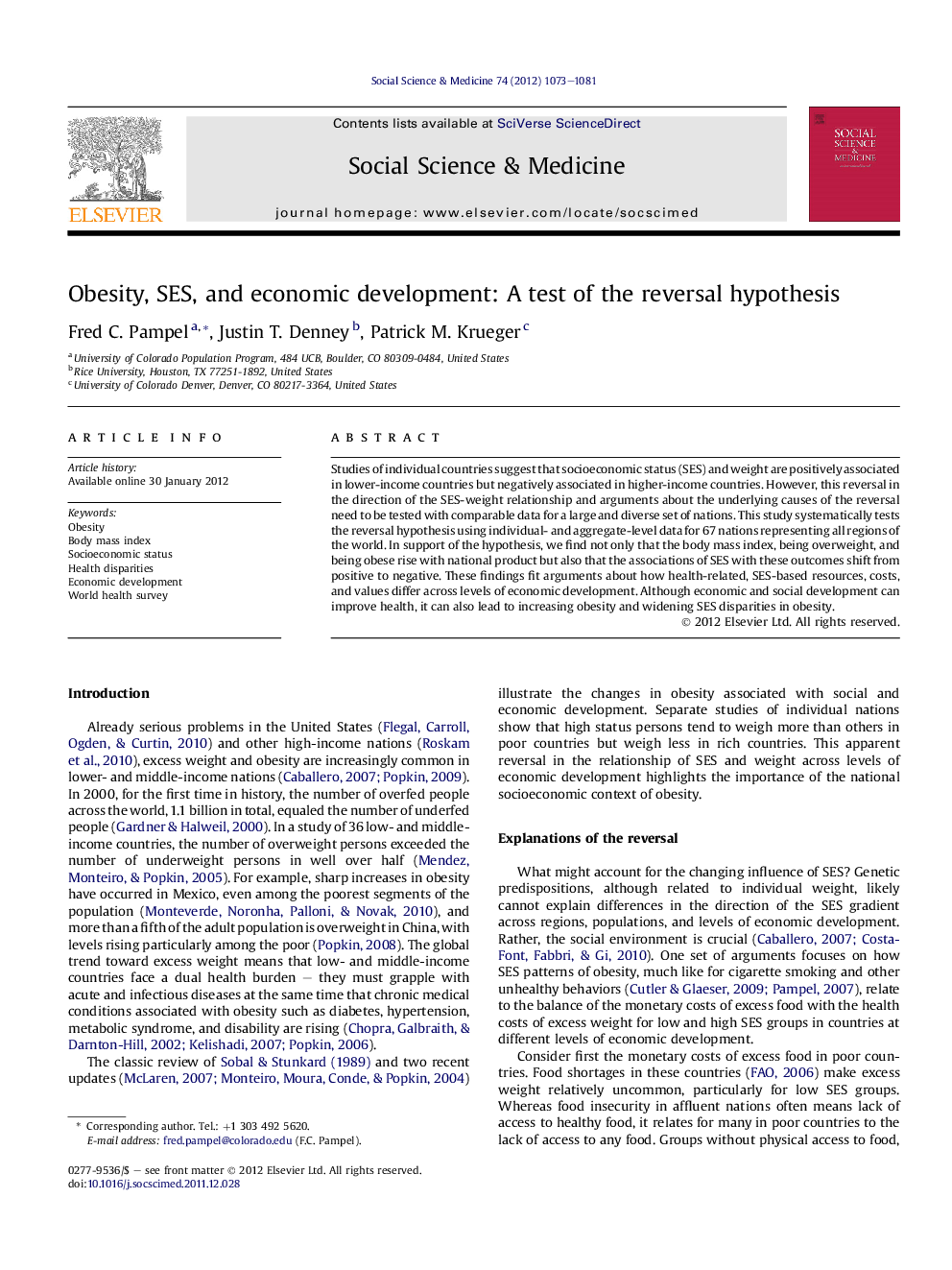| Article ID | Journal | Published Year | Pages | File Type |
|---|---|---|---|---|
| 952719 | Social Science & Medicine | 2012 | 9 Pages |
Studies of individual countries suggest that socioeconomic status (SES) and weight are positively associated in lower-income countries but negatively associated in higher-income countries. However, this reversal in the direction of the SES-weight relationship and arguments about the underlying causes of the reversal need to be tested with comparable data for a large and diverse set of nations. This study systematically tests the reversal hypothesis using individual- and aggregate-level data for 67 nations representing all regions of the world. In support of the hypothesis, we find not only that the body mass index, being overweight, and being obese rise with national product but also that the associations of SES with these outcomes shift from positive to negative. These findings fit arguments about how health-related, SES-based resources, costs, and values differ across levels of economic development. Although economic and social development can improve health, it can also lead to increasing obesity and widening SES disparities in obesity.
► Studies of global patterns of obesity lack comparable data on nations across all world regions and levels of development. ► We examine unique data on socioeconomic status and weight for individuals in 67 diverse nations with the World Health Survey. ► We find that the influence of socioeconomic status on obesity shifts from positive to negative with national income. ► Economic and social development can both improve health and lead to widening SES disparities in obesity.
